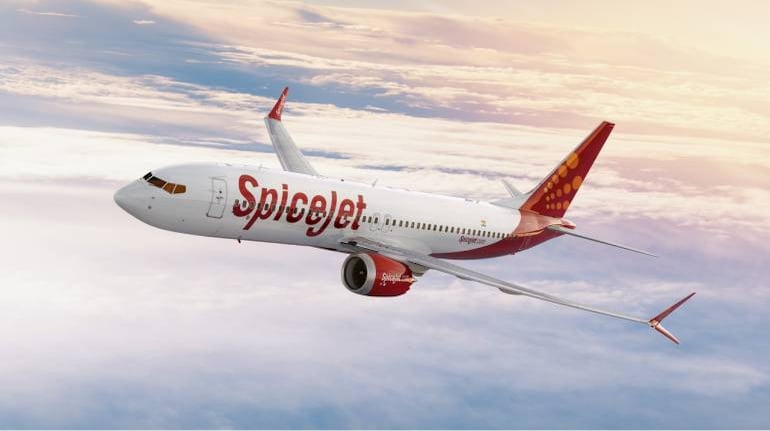



The Directorate General of Civil Aviation on July 27 restricted domestic budget carrier SpiceJet's flights to 50 percent of departures approved under the summer schedule. The civil aviation regulator released the order on SpiceJet after reviewing and observing the multiple incidents that were reported between April 1 and July 5.
SpiceJet responded to the DGCA action saying: “We are in receipt of the DGCA order and will act as per directions of the regulator. Due to the current lean travel season, SpiceJet like other airlines had already rescheduled its flight operations. Hence, there will be absolutely no impact on our flight operations. We want to reassure our passengers and travel partners that our flights will operate as per schedule in the coming days and weeks. There will be no flight cancellation as a consequence of this order.”
“DGCA’s observation that SpiceJet is taking measures for arresting the trend of incidents is very encouraging and we will continue to work under the close guidance of the regulator.”
The DGCA's interim order comes just a day after SpiceJet responded to the regulator's show cause notice which was served to the airline on July 6 for its failure to offer “safe, efficient and reliable” air services. The regulator gave the airline three weeks to respond to the notice.
The DGCA said in its interim order that on a number of occasions, the aircraft either turned back to its originating station or continued landing to the destination with degraded safety margins.
Further, the regulator noted that there has been poor internal safety oversight and inadequate maintenance actions that have resulted in the degradation of the safety margins.
Further, a financial assessment carried out by the DGCA in September 2021 has revealed that SpiceJet is operating on cash and carry and suppliers/ approved vendors are not being paid on a regular basis, leading to the shortage of spares and frequent invoking of MELs.
The regulatory authority noted that “SpiceJet failed to establish a safe, efficient, and reliable air transport service under the terms of rule 134 read with Schedule XI of the Aircraft Rules, 1937, and accordingly a show cause notice was issued.” The accountable manager of SpiceJet was given three weeks’ time to explain why action should not be taken against the airline.
In view of the findings of various spot checks, inspections, and reply to the show cause notice submitted by SpiceJet, for the continued sustenance of safe and reliable air transport service, the number of departures of the airline is hereby restricted to 50 percent of the number of departures” for a period of eight weeks from the date of issue of the order. During this period, the airline will be subjected to “enhanced surveillance” by the DGCA and further decision on the matter will be taken thereafter.
The DGCA had started conducting spot checks on SpiceJet planes on July 9 and completed the same on July 13. Minister of State for Civil Aviation VK Singh told Rajya Sabha on July 25 that soon after the show-cause, the DGCA grounded 10 SpiceJet planes after carrying out 53 spot checks on 48 of its planes between July 9 and July 13.
Notably, since July 6, after SpiceJet came under regulatory scanner, incidents of snags on SpiceJet flights have reduced over the past few weeks.
However, a recent survey has revealed that passengers have started losing faith in the budget carrier after the series of incidents came to light. About 44 percent of Indians traveling on domestic air routes said they were avoiding SpiceJet flights over safety concerns, a survey conducted by Moneycontrol and LocalCircles on July 6 and 7 showed.
The low-cost carrier on July 5 reported that its Delhi-Dubai flight was diverted to Karachi after noting a malfunctioning fuel indicator and its Kandla-Mumbai flight had had to do a priority landing in Mumbai after cracks developed on its windshield mid-air.
Further, a freighter aircraft of the airline, which was headed to Chongqing in China, had returned to Kolkata on July 5 after the pilots realised that the weather radar was not working.
Other technical snags faced by SpiceJet include smoke coming out of the cabin of its Delhi-Jabalpur flight on July 2. As per preliminary investigations, an oil leak in one of the engines of the Q400 aircraft had likely caused the smoke in the cabin.
Additionally, on June 25, a SpiceJet Q400 aircraft had halted its take-off roll at Patna airport when the plane's fuselage door warning light illuminated. The alert was discovered to have originated from the luggage door at the back of the aeroplane.
A similar problem had occurred on a SpiceJet Q400 flight (Guwahati-Kolkata) the day before the June 25 incident. When it was on 'rotation,' the fuselage warning light had illuminated.
On June 19, the airline had reported two incidents. In the first, an engine of the carrier's Delhi-bound jet carrying 185 people had caught fire shortly after takeoff from Patna airport, forcing the plane to make an emergency landing minutes later.
On May 20, around six flights of the cash-strapped airline were delayed as the airline didn’t clear its payments in advance. The airline had attributed the delays in payment to an attempted ransomware attack on the night of May 19.
The struggling airline’s accumulated losses stood at around Rs 5,478 crore at the end of December 2021, while its liabilities exceeded assets by around Rs 6,347 crore during the same period. SpiceJet has also deferred its earnings for the quarter ending March 2022, citing the ransomware attack the reason for the delays in coming out with its result. The steep rise in fuel prices in the last few months is expected to further hurt the airline’s financials even more.
Discover the latest Business News, Sensex, and Nifty updates. Obtain Personal Finance insights, tax queries, and expert opinions on Moneycontrol or download the Moneycontrol App to stay updated!